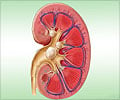It is now well-documented in literature that hyperkinetic disorders among children and adolescents are becoming increasingly common.

In 2007, the overall prevalence of hyperkinetic disorders among persons aged 0 to 18 years was 2.2%. This figure was nearly 50% higher than the corresponding figure for 2000. The authors found the greatest rise in prevalence in the 15- to18-year-old age group. This secular trend was particularly noteworthy for girls: among persons aged 6 to 18 years, the prevalence of hyperkinetic disorders rose by 70% among girls, as compared to 53% among boys.
In 2007, 1.1% of 6- to 18-year-olds received at least one prescription for methylphenidate. This figure corresponded to a 252% increase in daily doses prescribed in comparison to the 2000 level. The authors found that the increase was due to rises not only in the number of persons for whom methylphenidate was prescribed, but also in the average amount of the drug prescribed per patient.
Source-Eurekalert
 MEDINDIA
MEDINDIA



 Email
Email




